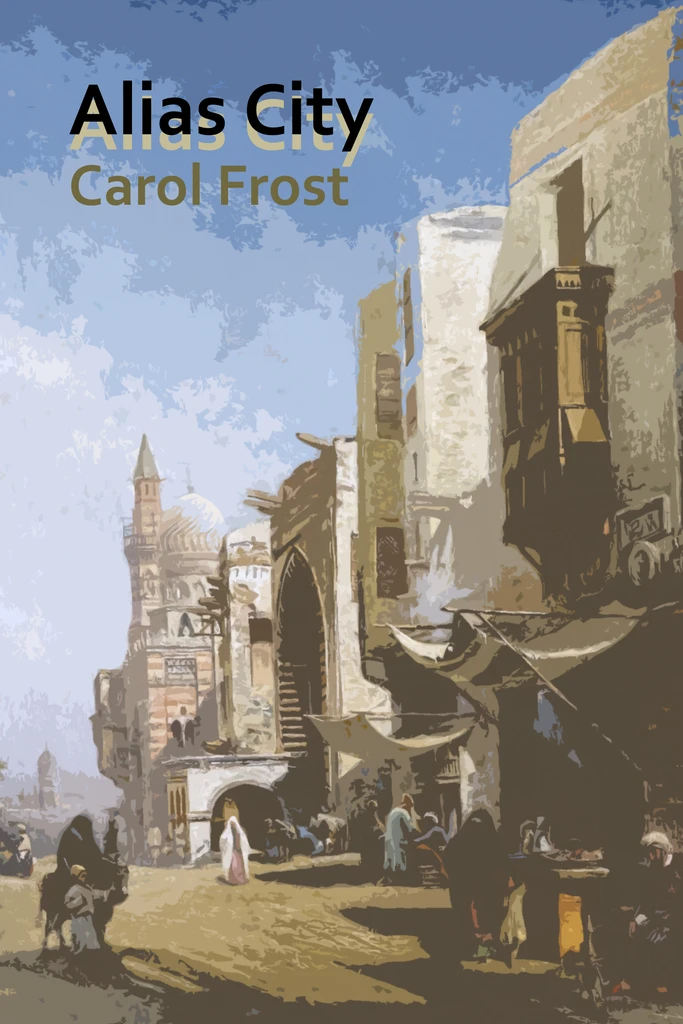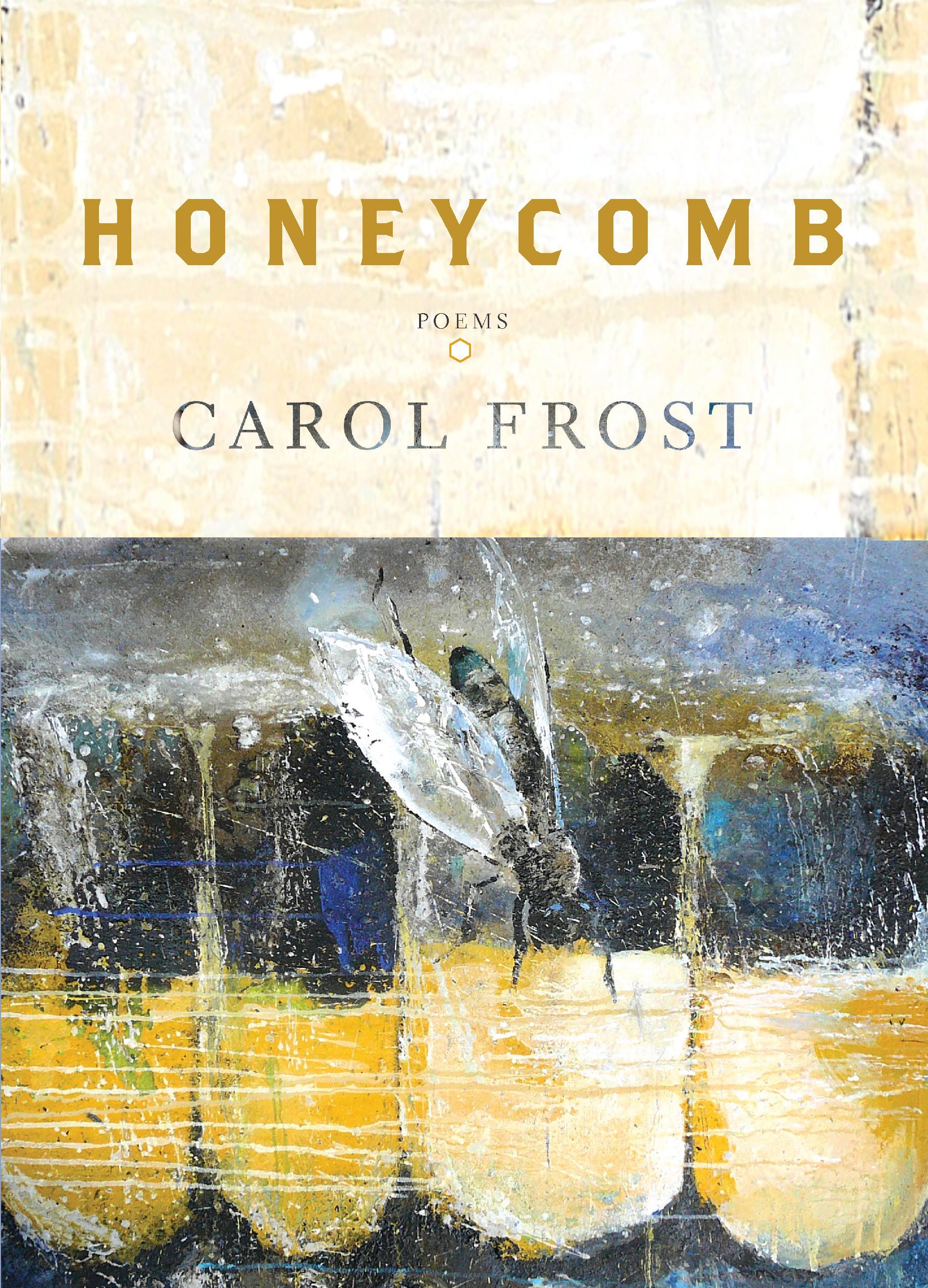Alias City
There is something astonishing about the ardor with which Carol Frost articulates and sings the sorrows of our disappearing. There's something so wise in the song, in the music of her tough, clear seeing. Her poems have a fierce, unswerving purity of purpose and design, their embodying language rich, dense, and passionate.
Featured Poems
Song of the City at Night
Whatever hid the sun and moon inside a mountain
brought people there to found the night
where a city swans on river water
laving with light each passing wake,
mesmerizing a couple on the riverbrink.
They seem unaware what is myth
or real, taken up, as it were, by a swan’s bill
and flown to a milkwater world
where it’s possible to drink only the milk
and eat pearls. A gunshot, a siren
interrupts the quiet. Something is thrown
into the river, then the swan is mute.
To sing of this the swan would have to out-swan
itself, Sibelius out-Sibelius Sibelius.
Himalayan
Call for stars and atoms, abyss and rime
Call avalanche to cover up the climbers left behind.
Let no one any longer see how cold they are.
Sweep off empty canisters and Mallory’s torso,
preserve no more misgivings. Bear these heights alone.
Mind sundown wrestling on the shoulders.
Mind the death zone—air, air, air—and go back down
then tomorrow like shoeless sheep
leave earth behind with its examples of falling,
what’s right and what’s wrong
no more than dispersing and building clouds
on the mountain. Make yourself no elegy
but the stone snows swallow then exhume.
Books
Alias City
Honeycomb
Love & Scorn
Words from Peers
“Carol Frost’s complex and sumptuous new book, Alias City, is structured as a kind of pas de deux between the poet and her mother, Renée Fellner. A reader enters the book in the midst of a tumult of voices, identities, and histories. Fellner, an Austrian émigrée, seems to be, at once, the voice of these poems and the subject of Frost’s elegies. Together, these two women’s lives, written side by side, sustain and shape this intricate and eloquent volume. Frost has been one of her generation’s pioneer lyric poets. She further enlarges the lyric here: Alias City is a far-reaching exploration of history, suffering, and, above all, of art with its betrayals and salvations.”
— Lynn Emanuel, author of The Nerve of It: New and Selected Poems
“Welcome to Carol Frost's Alias City, which is, in the best sense of both words, the city of music. It is an orchestra wherein different turns of phrase, and syntactical wonders co-exist beautifully, to our delight. But it is also a great city of the mind. How so? The hero of this book is a refugee, a survivor of World War II. She is now losing her memory, trying to recount what happened, giving us brief glimpses into the darkness known as history and the healing known as the natural world, of pigeons, doves, and the comic, ridiculous humans. Herein, she remembers the flight, the terror, and the cities torn in two.... What does one see when one has lost memory, forgotten all the stories, yet still sees scraps of cities, of our lives: ‘Ridiculous, we. All the long, bright days. Days / without death, without without, the without. The suicide leap, comic as sex.... All our acts become gestures of our acts. The litter of years / has been, swept into another precinct.’ I am continuously amazed.... Amazed, and grateful for this chorus, and for this wisdom: ‘From no small rip in fate / the you you never shall be / more will be extracted.’”
– Ilya Kaminsky, author of Deaf Republic
“Carol Frost has been, for a very long time, one of the best and most original poets of her generation. Her poems have a fierce, unswerving purity of purpose and design, their embodying language rich, dense, and passionate. In Alias City, Frost charts new territory, creating a multiplicity of cities, dreamed, imagined, apprehended, felt, experienced. Selfhood, too, has many aspects that the interlocutor of these poems must navigate, as when Frost writes, ‘For a little while I was two persons, old and young/wise and clean, sturdy and bent, generous and dead.’ This elusive, beautiful book marks another striking phase in Frost’s poetic evolution, challenging the reader even as it rewards.”
— Elizabeth Spires, author of A Memory of the Future
“There is something astonishing about the ardor with which Carol Frost articulates and sings the sorrows of our disappearing. There’s something so wise in the song, in the music of her tough, clear seeing. ‘Little did I know / what labyrinths living contained, that no matter / how still I kept I already walked there.’ These poems, this poet, knows something of the labyrinths we do not escape, and it is kindness by which she shines her light on them for us. By which she brings what she knows back to us.”



